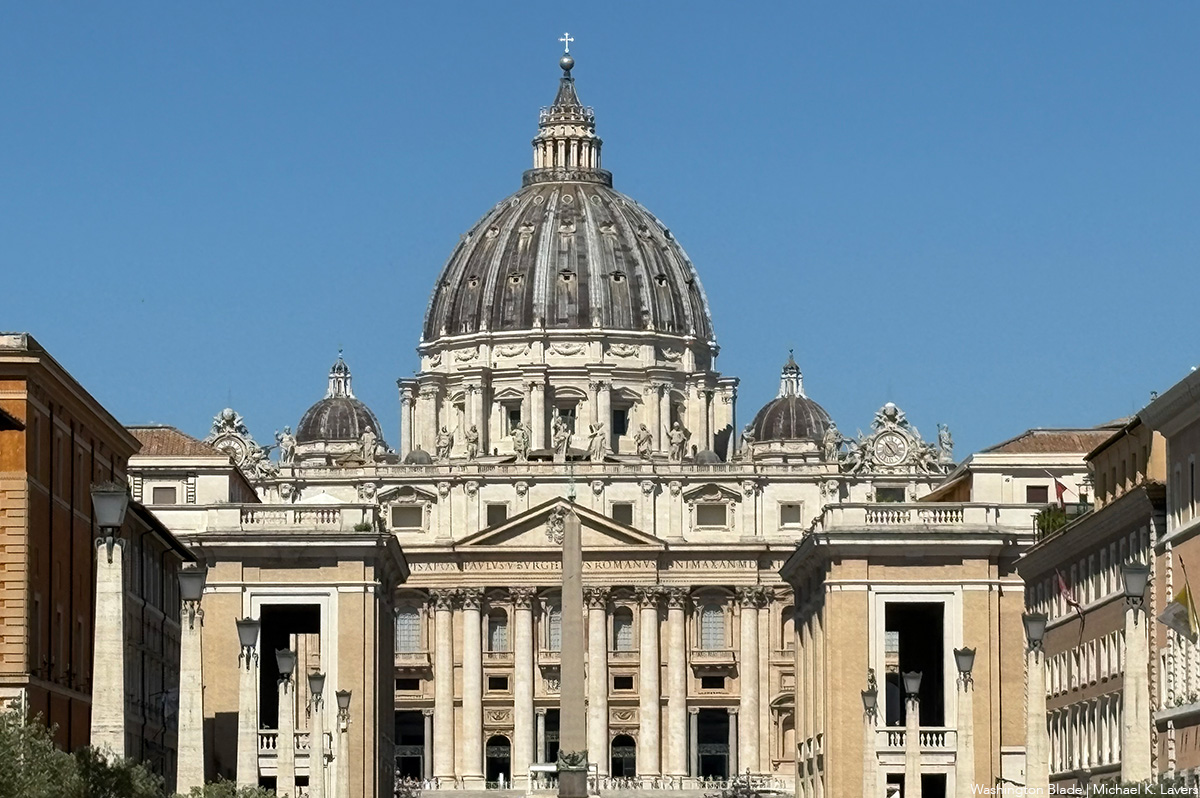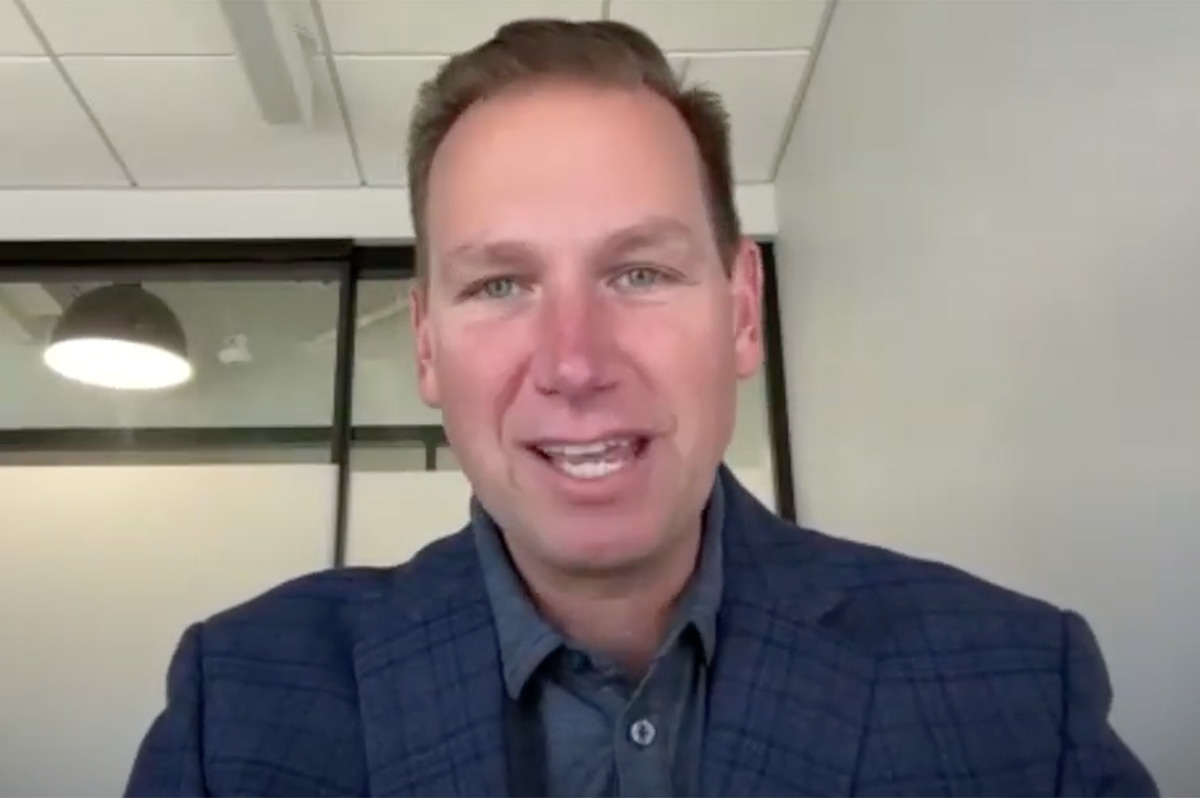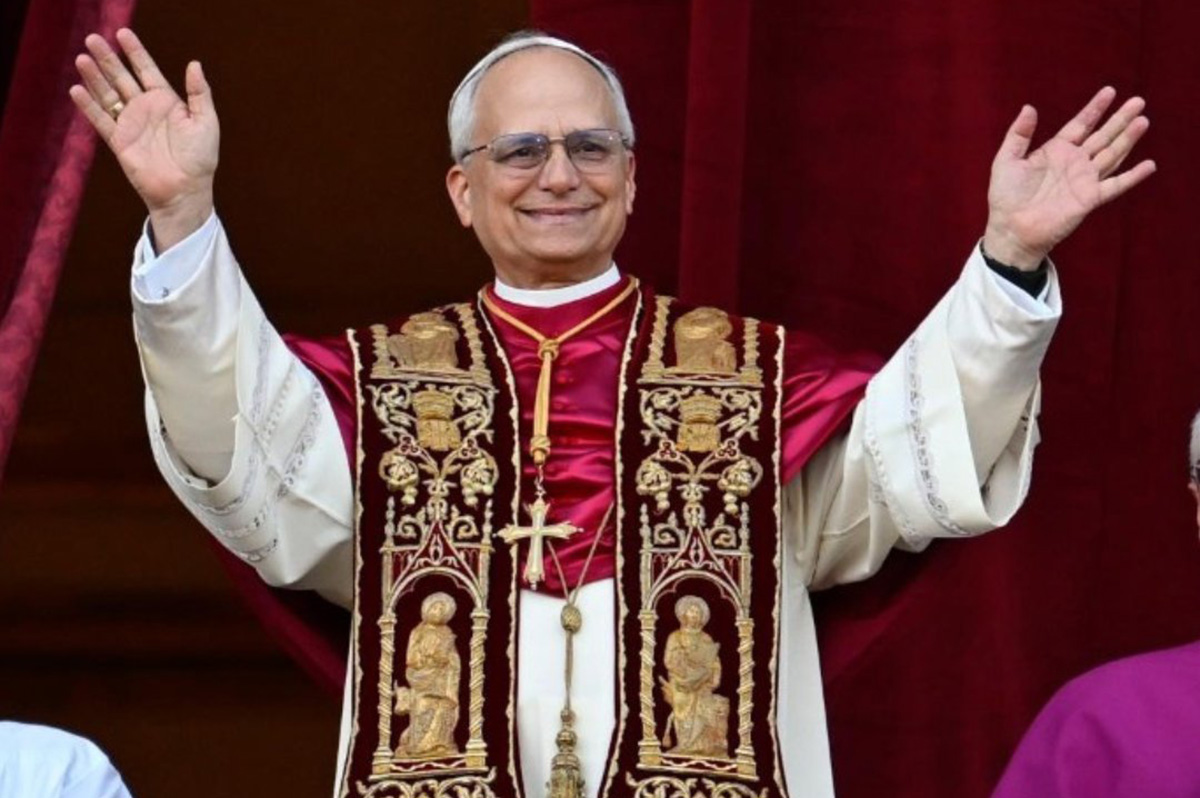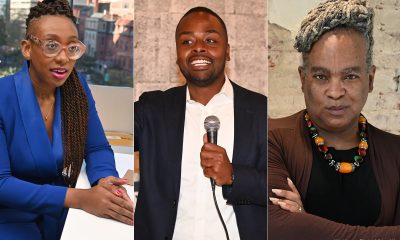The Vatican
Pope Francis meets with transgender, intersex Catholics
Meeting took place at pontiff’s Vatican residence on Oct. 12

Pope Francis met with a group of transgender and intersex Catholics and LGBTQ allies at the Vatican on Oct. 12.
During the meeting, participants shared their personal stories, urging the pope to support greater acceptance within the church and address its stance on gender-affirming care.
Sister Jeannine Gramick, one of the co-founders of New Ways Ministry, a U.S.-based Catholic organization advocating for LGBTQ people, arranged the meeting that took place at Casa Santa Marta, Francis’s residence in Vatican City.
The delegation that met with the pope included Nicole Santamaría, an intersex woman, Michael Sennett, a trans man, and Cynthia Herrick, a doctor who works in a gender medicine clinic. Over the course of more than an hour, they recounted to Francis their struggles with depression and suicide on their transition journey and emphasized the positive impact of gender-affirming care.
New Ways Ministry Executive Director Francis DeBernardo, who was present at the meeting, said Francis didn’t respond vocally so much, but, clutching his cross, looked “sincerely pained” as he listened to people describe their hardships and “nodded vigorously when they talked about how positive medical transition was for them.”
“He really thanked them. He was very grateful that he had this opportunity,” DeBernardo said.
The impetus for bringing the pope in direct conversation with trans and intersex people was the Vatican’s release of the “Dignitas Infinata” declaration in April. While the document emphasized the need for respect and dignity for all, it also condemned gender-affirming medical care, framing it as incompatible with human dignity.
Gramick, who had been corresponding with the pope and had met him with members of the New Ways Ministry last year, was disappointed by the declaration and proposed that he hear directly from trans and intersex Catholics about their experiences, to which he agreed.
“Part of the problem is that the Vatican documents had not consulted transgender, intersex people, or any of the medical professionals who work with them. So we were encouraging the pope to consult with people more and to view people’s stories,” DeBernardo said.
The participants in the meeting had previously shared their personal testimonies with a group of two dozen Catholic bishops in the U.S. earlier this year as part of New Ways Ministry’s efforts to educate church leaders about the experiences of LGBTQ people and to advocate for their full acceptance.
During the meeting, Gramick stressed to Francis that other Vatican officials must also listen to the voices of LGBTQ people. DeBernardo said the pope fully agreed with this suggestion.
DeBernardo believes that by accepting the invitation to meet the group and listening to the experiences of trans and intersex people, Francis was deliberately setting a precedent for other church leaders to engage more meaningfully with the LGBTQ community.
In its doctrine, the Catholic Church condemns any same-sex sexual relations and rejects same-sex marriage. However, under Francis, the church has generally adopted a more inclusive tone toward LGBTQ people. The Vatican last year reversed a 2015 absolute ban on trans people serving as godparents, and approved priests to bless same-sex couples — but not same-sex unions.
Two LGBTQ activists from Africa — Clare Byarugaba of Chapter Four Uganda and Rightify Ghana Director Ebenezer Peegah — met with Francis in August.

The Vatican
Gay D.C. couple participates in LGBTQ pilgrimage to Vatican
Jim Sweeney and Jason Carson Wilson were among 1,200 pilgrims

A gay couple from D.C. took part in an LGBTQ pilgrimage to the Vatican on Saturday.
Jim Sweeney and his husband, the Rev. Jason Carson Wilson, were two of the more than 1,200 people who participated in the pilgrimage that took place during the Catholic Church’s 2025 Jubilee.
The pilgrims entered St. Peter’s Basilica through its Holy Door, which CNN notes symbolizes forgiveness and reconciliation. (The year-long Jubilee began on Christmas Eve when then-Pope Francis opened the Holy Door.)
The pilgrims on Sept. 5 attended a Mass that took place at Rome’s Church of the Gesù.

DignityUSA in a press release notes the pilgrimage is the first-ever LGBTQ pilgrimage the Vatican has recognized.
“We’re really, really excited,” Sweeney, a member of Dignity Washington, told the Washington Blade during a telephone interview from Rome. “This is a first.”
Wilson, a former journalist and founding executive director of the Bayard Rustin Liberation Institute who is an ordained United Church of Christ minister, echoed his husband.
“To be here in Rome, the cradle of Catholicism, is just an amazing experience,” Wilson told the Blade.
DignityUSA President Meli Barber described the pilgrimage as “truly historic, even miraculous.”
“Many of us could not have imagined that LGBTQ+ Catholics, who have too often been unwelcome in our own church, will have a chance to walk through the Holy Door of St. Peter’s Basilica, and to pray together there as part of a Holy Year event,” said Barber. “We carry the hope that this is another milepost along the path to full inclusion in our church, the church we have always been part of. We are filled with joy and pride for everyone who will be representing us all.”
Francis DeBernardo, executive director of New Ways Ministry, a Maryland-based organization that ministers to LGBTQ Catholics, also took part in the pilgrimage.
“It’s a great and historic honor to be part of this pilgrimage,” said DeBernardo in a press release. “The fact that the Vatican is welcoming this pilgrimage shows how much the church has grown in regard to accepting LGBTQ+ people.”
The pilgrimage took place less than four months after Pope Leo XIV became pope.
The American-born pontiff succeeded Francis, who died on April 21.
The Vatican’s tone on LGBTQ and intersex issues softened under Francis’s papacy, even though church teachings on homosexuality did not change. Leo as pope has reaffirmed Vatican doctrine that says marriage is between a man and a woman, but he will continue to allow priests to bless same-sex couples. The American-born pontiff on Sept. 1 met with the Rev. James Martin, a Jesuit priest who founded Outreach, a ministry for LGBTQ Catholics.
“Let me address what many people want to know: Pope Leo’s approach to LGBTQ Catholic ministry,” said Martin in a message posted to Outreach’s website. “The message I received from him, loud and clear, was that he wanted to continue with the same approach that Pope Francis had advanced, which was one of openness and welcome. So, it was very much a hopeful message of continuity.”

Sweeney said he expects Leo will continue Francis’s legacy of welcoming LGBTQ Catholics into the church. Wilson added he is “cautiously optimistic.”
“I just really am glad to see that we’re in the space, that we’re going to have this pilgrimage, and that LGBT people are going to be allowed to walk through the Holy Door, signifying that we are holy, that we are holy enough to walk through that door,” Wilson told the Blade.
Congress
Co-founder of anti-LGBTQ Catholic group confirmed as next Vatican ambassador
Brian Burch criticized Pope Francis over same-sex couples blessings

The U.S. Senate on Saturday confirmed the co-founder of an anti-LGBTQ Catholic group to become the next U.S. ambassador to the Vatican.
Senators confirmed former CatholicVote President Brian Burch by a 49-44 vote margin.
President Donald Trump late last year nominated Burch for the ambassadorship.

The Vatican’s tone towards LGBTQ and intersex issues softened under Pope Francis’s papacy, even though church teachings on homosexuality and gender identity did not change.
Burch sharply criticized the Argentine-born pontiff’s 2023 decision to allow priests to bless same-sex couples.
Francis died in April.
Pope Leo XIV in May reaffirmed Vatican doctrine that says marriage is between a man and a woman. The American-born pontiff, however, has said priests can continue to bless same-sex couples.
A Dec. 5, 2024, post on Catholic Vote’s website on the U.S. v. Skrmetti case notes the justices heard oral arguments on “whether Tennessee can protect children from puberty blockers, which chemically sterilize, and sexual surgeries that mutilate and castrate.” A second CatholicVotes post notes the justices grilled the Justice Department “on challenge to Tennessee protections for children against ‘transgender’ mutilations and sterilizations.”
The U.S. Supreme Court in June upheld the Tennessee law that bans gender-affirming health care for minors.
“I am profoundly grateful to President Trump and the U.S. Senate for this opportunity to serve as the next U.S. Ambassador to the Holy See,” said Burch in a statement CatholicVote released on Saturday. “I have the honor and privilege of serving in this role following the historic selection of the first American pope. In a remarkable coincidence, or what I prefer to attribute to Providence, Pope Leo XIV is from Chicago, which is also my hometown.”
“The relationship between the Holy See and the United States remains one of the most unique in the world, with the global reach and moral witness of the Catholic Church serving as a critical component of U.S. efforts to bring about peace and prosperity,” he added. “As a proud Catholic American, I look forward to representing President Trump, Vice President Vance, and Secretary Rubio in this important diplomatic post. I ask for the prayers of all Americans, especially my fellow Catholics, that I may serve honorably and faithfully in the noble adventure ahead.”
The Vatican
Pope Leo XIV: Family based on ‘stable union between a man and a woman’
American-born pontiff met with Vatican diplomats on May 15

Pope Leo XIV on May 15 reaffirmed Vatican doctrine that says marriage is between a man and a woman.
The Associated Press reported Leo told Vatican diplomats the family is created upon the “stable union between a man and a woman.” Vice President JD Vance, Secretary of State Marco Rubio, and dozens of other world leaders on Sunday attended the American-born pontiff’s installation Mass that took place in St. Peter’s Square.
The College of Cardinals earlier this month elected Leo to succeed Pope Francis, who died on April 21.
Francis, who was from Argentina, was a vocal opponent of the country’s marriage equality law that took effect in 2010. He was the archbishop of Buenos Aires, the Argentine capital, when then-President Cristina Fernández de Kirchner signed it.
Francis in 2020 publicly backed civil unions for gays and lesbians. Francis in 2023 said priests can bless same-sex couples.
-

 District of Columbia4 days ago
District of Columbia4 days agoJudge rescinds order against activist in Capital Pride lawsuit
-

 District of Columbia4 days ago
District of Columbia4 days agoTrans activists arrested outside HHS headquarters in D.C.
-

 Opinions4 days ago
Opinions4 days agoHow do we honor Renee Good, Alex Pretti?
-

 Sports5 days ago
Sports5 days agoUS wins Olympic gold medal in women’s hockey



















